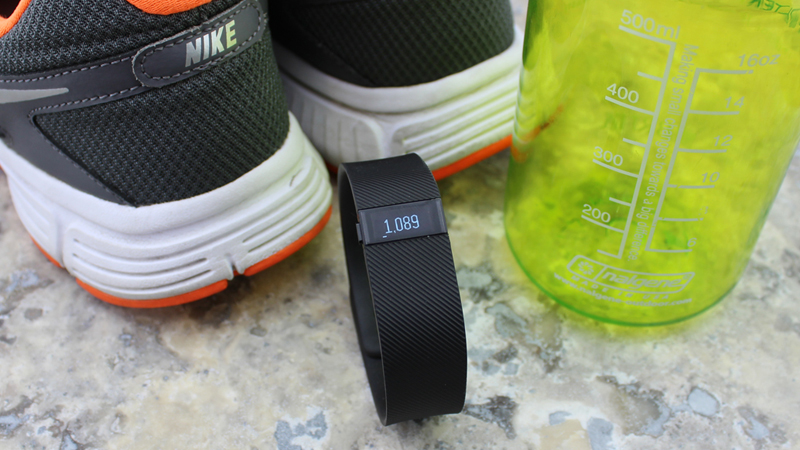Why you can trust TechRadar
Interface
People often ask me what's so great about wearing a Fitbit Charge and other fitness trackers. It's not just the daily stats that get you motivated, it's seeing the numbers over time.
Fitbit Charge wirelessly syncs to an iPhone, Android or even Windows Phone within a 20-foot range, or it can do the same with a computer thanks to an included Bluetooth USB dongle.
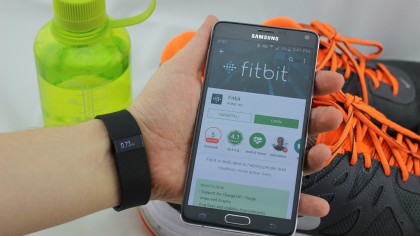
Fitbit's mobile app and web-based dashboard transform the one day and one-viewable line stats on the device fitness tracker into color-rich graphs for deep, multi-day analysis.
Steps, distance, calories burned and floors climbed are here and it adds very active minutes for when you broke a sweat running and sleep for when you didn't. Creative badges can be earned for additional motivation.
Fitbit's app and website allow you to manually log food and cups of water consumed. Neither are intuitive in this game of automatic stat-tracking and, in fairness, no one does this right. There are just no sensors to make sense of eating and drinking just yet.
Jawbone Up24 has a more colorful mobile app, but Fitbit stands head and shoulders among its chief rival because it works on the web too, where such charts are easier to digest. That's a win for anyone who is serious about exercise and wants to pour over their longtail stats.
Fitbit Charge accuracy
Is Fitbit Charge accurate? It's about as perfect at counting steps and calories burned as the Fitbit Force, Fitbit Flex and Fitbit One before it, meaning not that much.
Sign up for breaking news, reviews, opinion, top tech deals, and more.
We found that it adds about five extra steps for every 100 strides taken, which adds up after a while. Jawbone Up24 and Basis Peak were more true to the number of steps taken. Nike FuelBand SE inflated the number of steps taken too, but not as drastically as any Fitbit.
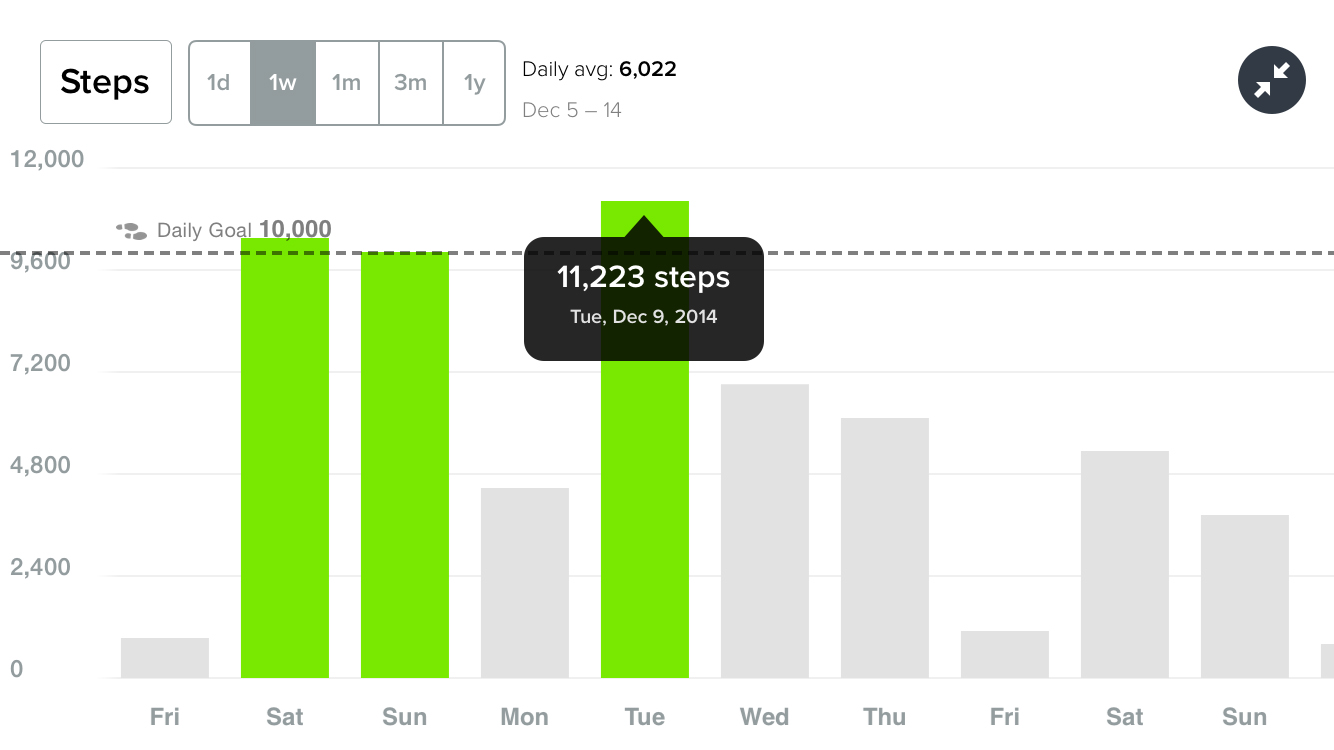
Secretly, I think it helps in Fitbit's success since it's the "feel good" motivator every year when paired next to other fitness trackers.
But that doesn't matter as much as you'd think since it stays fairly consistent. Today's stats aren't any more inflated than tomorrow's. What's more important often times is competing against friends and their daily or weekly number.
All of your Fitbit-owning friends are listed in a tab (as long as their privacy conditions allow it), revealing how lazy and pathetic they are compared to you, or how mean and prideful they are. They're either couch potatoes or showoffs when the competition gets underway. It's fun.
Since the Fitbit accuracy is constant, precision doesn't matter all too much. And, actually, if Fitbit Charge became more in tune, it'd throw a wrench into this multi-device friends' race.
Sleep tracking
First the good news: there's a new sleep tracking feature that makes it easier to log sleep consistently. Now, the bad news: I didn't find it to be much more accurate.
Fitbit is known for providing a basic sleep timeline that consists of asleep in blue, restless in aqua and awake in pink. But Fitbit Charge's patterns don't always reflect other trackers.
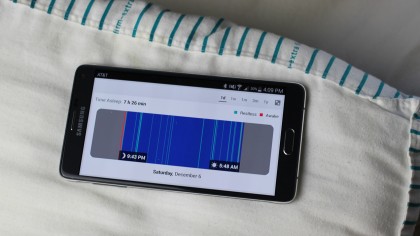
Worse, it's harder to read compared to the minute-by-minute sleep analysis provided by the Jawbone Up24 and Basis Peak sleep tracker.
What the Fitbit Charge does do right that you won't find among Jawbones is automatically logging sleep within minutes of dozing off.
The Basis Carbon Steel and Basis Peak both automatically log sleep and the forthcoming Jawbone Up 3 promises to do the same.
It's not perfect in the Fitbit Charge, but it sure beats having to set the band into sleep mode with a long press of a button. That was always a little backwards and now it's fixed.
What the Fitbit line really needs is a new way of display the sleep tracking data it collects. The scrunched-up timeline isn't easy to read, making automatic sleep detection less meaningful.
Silent alarm
Fitbit Charge's ability to judge sleep quality is often hit-or-miss, but it never fails to wake me up thanks to its returning silent alarm feature.
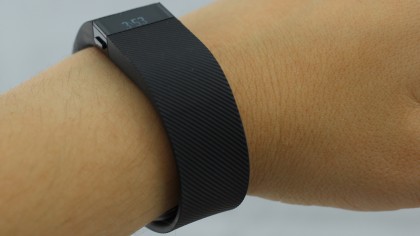
The band, secured around my wrist, vibrates at the exact time I set in the app's silent alarm menu, waking me and only me up. No one has to hear an annoying buzzing clock alarm.
It's brilliant if you're sleeping next to someone and have to get up earlier or simply hate the too-long-tenured idea of a blaring alarm clock every morning.
Fibit Charge is missing the "smart alarm" idea that's supposed to wake you in a 10 to 30 minute window before your alarm time when you're less groggy. That's a perk that Jawbone Up24 holds over all Fitbits.
Current page: Interface, accuracy, sleep tracking
Prev Page Introduction, design and display Next Page Caller ID, battery life, compatibility and verdict
